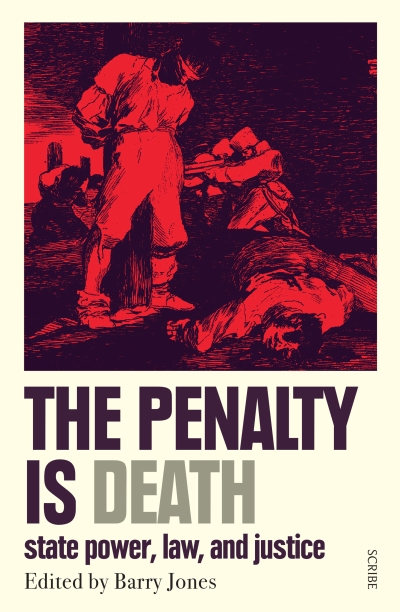 Originally published in 1968 and re-published in 2022 to mark the centenary of the abolition of the death penalty in Queensland, The Penalty Is Death is an anthology concerning the capital punishment debate.
Originally published in 1968 and re-published in 2022 to mark the centenary of the abolition of the death penalty in Queensland, The Penalty Is Death is an anthology concerning the capital punishment debate.
The collection, divided into five parts, commences with two essays that provide comprehensive overviews of, and contemporarily contextualise, the debate for the modern reader. Notably, in his essay included in this part, Barry Jones addresses the question of why debating the death penalty in 2022 is relevant. His answer is captivating: “[c]apital punishment is a central metaphor/analogy about the problems of state power, the fallibility of human judgment, flaws in rigid institutions, the use of special pleading, and the danger of making decisions that are irreversible.” The case for abolition is then addressed with the inclusion of essays dating back to 1764, serving to emphasise the tireless commitment of abolitionists to the cause.
Part III of the compilation is concerned with the case for retention where, perhaps predictably, essays authored by law enforcement figures, including J. Edgar Hoover, dominate. What stands out from the collection is the remarkable consistency of the arguments proffered by abolitionists and retentionists in support of their competing views. The collection’s authority emanates from inclusion of essays that uniquely and individually marshal these familiar arguments.
Part IV, aptly titled ‘The Reality’, includes essays that conjure what state sanctioned execution is and the shocking routineness with which it is carried out. The essays included in this Part serve to ensure that the text is not confined to theoretical debate and theory. For example, included in the collection is George Orwell’s essay, ‘A Hanging’, in which Orwell vividly describes witnessing a hanging and lays bare “the unspeakable wrongness, of cutting a life short when it is in full tide”.
Then, in ‘A survey’, Barry Jones addresses the decline and fall of the death penalty in the English-speaking world.
It is with some shame that I admit to having previously consigned this debate to the ‘Not-of-Immediate-Concern’ column of my ‘Problems-to-be-Dealt-with-List’, particularly because, as Richard Bourke points out in his -Foreword, as an Australian barrister, the present prospect of mounting a capital defence is happily unimaginable. The error of this consignment is now clear to me, having read The Penalty Is Death. Advocating abolition of the death penalty, as Barry Jones concludes in his overview, is not merely directed to preserving and protecting Australian nationals who face the prospect of execution in a retentionist State, but is “a campaign with universal application… with the moral force that earlier generations worked with to end slavery, liberate women, and eliminate torture and punishments for heresy and witchcraft.”
Those responsible, particularly the chair and members of the Capital Punishment Justice Project, for undertaking the herculean task of shepherding resources sufficient to re-publish The Penalty is Death have ensured that, as Julian McMahon AC SC says in his Foreword, “an invaluable resource, filled with wisdom and powerful writing to make us all think more deeply” has been refreshed and re-enlivened for present and future generations.
Kate Slack
Barrister
Higgins Chambers
